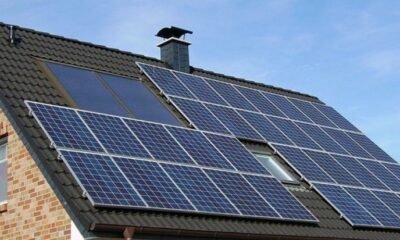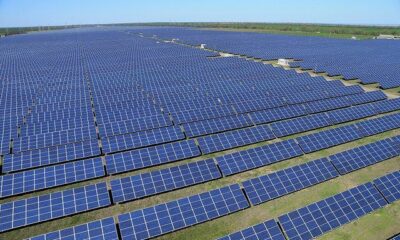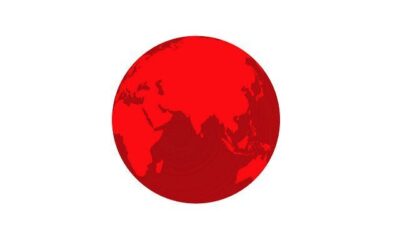

Energy
Despite Advocating for Energy Transition, EC Slows Advance of Solar PV
On Saturday the European Commission (EC) released its decision to launch an inquiry into the use of Minimum Import Pricing (MIP) for solar PV modules imported from China. The Renewable Energy Association (REA) has been adamant that it should be removed, which would substantially reduce the cost of installing solar PV in Europe.
Although the announcement of an inquiry may sound like a positive step, in reality it will unnecessarily extend the policy for at least the duration of the inquiry, which could take up to 15 months. The global average price for solar modules is around €0.40/watt. With MIP however Chinese panels must be imported at €0.56/watt. Other companies based outside of China need only slightly undercut the MIP price meaning that the UK pays an artificially high price per module regardless of their source.
In addition the REA is anticipating the Department for Energy and Climate Change (DECC) to release its decision on the future of the Feed-in Tariff shortly, which supports the deployment of technologies such as solar PV and anaerobic digestion in the UK. The department’s proposed 87% cuts to aspects of the scheme have spurred widespread outcry, attracting over 55,000 responses.
A possible silver lining of the extension of MIP is that it may encourage Chinese companies to invest in and develop thin film solar technology, which is exempt from MIP. Although presently it is not as efficient as crystalline modules, it could play a significant role in the transition to renewable energy and could still benefit from price declines. It has already been effectively installed in solar projects in the UK and globally.
Lauren Cook, Policy Analyst at the REA said: “This announcement is not good news for the solar industry. It will keep system costs high and delay the industry in reaching grid parity. The REA had clearly recommended to both DECC and the European Commission that Minimum Import Pricing should be removed. This decision to launch an inquiry will extend the policy for the duration of the investigation. This will now need to be taken into account by DECC when making a decision on the Feed-in Tariff.”
James Court, Head of Policy and External Affairs at the REA, said: “It is deeply disappointing to hear the announcement that an inquiry will be launched into MIP, effectively extending the policy for another 12 to 15 months. Many member states, including the UK, have binding energy targets that were developed in conjunction with the European Commission. It is baffling that despite this, they have decided to keep in place MIP which is actively making this transition more expensive.
Ultimately it is the Chinese manufacturers that benefit. This policy does not raise taxes that benefit anyone in Europe. Instead it means manufacturers can sell their product at a rate that would be unacceptable in most other areas of the world.”


 Environment12 months ago
Environment12 months agoAre Polymer Banknotes: an Eco-Friendly Trend or a Groundswell?

 Features11 months ago
Features11 months agoEco-Friendly Cryptocurrencies: Sustainable Investment Choices

 Features12 months ago
Features12 months agoEco-Friendly Crypto Traders Must Find the Right Exchange

 Energy11 months ago
Energy11 months agoThe Growing Role of Solar Panels in Ireland’s Energy Future




























